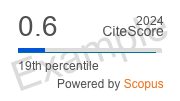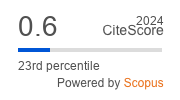Satisfaction with the quality of outpatient care of medical students as an element of the assessment of the current system of medical care
https://doi.org/10.29001/2073-8552-2023-38-1-181-185
Abstract
Introduction. This article discusses the problems of the quality of outpatient care for medical students. Most of the students prefer not to seek medical help from specialists even in difficult situations, and in most cases they self-medicate. This is caused by an insufficient degree of quality service by the outpatient polyclinic service of the attached contingent. The existing state system of medical care is imperfect: there is no unified approach to the organization of student polyclinics; medical organizations do not take into account the age and social specifics of students; low continuity in the rehabilitation and treatment of patients; there is insufficient preventive work among students.
Aim: To determine the level of satisfaction with the quality of medical services provided to medical students.
Material and Methods. The sociological method included a survey of medical students (1026 respondents) according to a specially designed questionnaire that contained questions about the scope, nature, quality of work and satisfaction with the conditions of the polyclinic institution. The logistic method consisted in the analysis of personnel, resource provision, as well as the activities of the medical institution.
Results. Most of the medical students encounter organizational obstacles (appointment, waiting lists at the registry, waiting lists at the day hospital, waiting lists at the reception, etc.). 38.0% of respondents noted that when health problems appear, it is easier for them to go to the medical office of the college than to the district doctor. Moreover, 64.3% of respondents do not have information about the district doctor. Satisfaction depends on a number of factors such as: waiting time for a doctor’s appointment at the office (p < 0.001), availability when making an appointment with a doctor at a polyclinic (p < 0.001), preference when contacting a doctor when health problems appear (p < 0.001), the presence of organizational difficulties to get an appointment or treatment in a polyclinic (p < 0.001), the location of the registry and specialist offices, the terminal for making an appointment (p < 0.001), as well as the conditions of stay in a medical facility (p < 0.001).
Conclusion. The necessity of introducing feedback into the practice of working with a contingent of medical students, using available screening technologies to actively identify the most significant factors and risk groups of the most common pathology, taking measures to reduce the impact of controlled factors, as well as annual preventive examinations and medical examinations has been identified.
About the Authors
M. P. ChukreyevRussian Federation
Maxim P. Chukreyev - Graduate Student, Siberian State Medical University of the Ministry of Health of the Russian Federation.
2, Moskovsky tr., Tomsk, 634050
D. E. Kalinkin
Russian Federation
Dmitriy E. Kalinkin - Dr. Sci. (Med.), Siberian State Medical University of the Ministry of Health of the Russian Federation.
2, Moskovsky tr., Tomsk, 634050
References
1. World Health Organization. 2018 Global Reference list of 100 Core Health Indictors (Plus Health-Related SDGs). Geneva, Switzerland; 2018:136. URL: https://apps.who.int/iris/handle/10665/259951/ (08.12.2022).
2. Latypova N.M. The place and role of youth in modern Uzbek society. Acad. Res. Educ. Sci. 2020;3:93–109. (In Russ.).
3. Melikhova E.P., Natarova A.A., Vasilyeva M.V. Hygienic assessment of the actual nutrition of medical university students. Symbol of Science. 2016;67(3–2):178–179. (In Russ.). URL: https://cyberleninka.ru/article/n/gigienicheskaya-otsenka-fakticheskogo-pitaniya-studentov-meditsinskogo-vuza (08.12.2022).
4. Bondarev V.G., Bashmakova N.I., Sinina A.I., Tsyplakova E.P. Social health of modern youth as a priority of the social policy of the state. Society: politics, economics, law. 2020;82(5):13–20. (In Russ.). URL: https://cyberleninka.ru/article/n/sotsialnoe-zdorovie-sovremennoy-molodezhi-kak-prioritet-sotsialnoy-politiki-gosudarstva (08.12.2022).
5. Poltavskaya M.B. Forms of social activity of youth and older generation. Proceedings of Tula State University. 2019;7(1):98–110. (In Russ.). URL: https://www.elibrary.ru/item.asp?id=41522513 (08.12.2022).
6. Alfvén T., Dahlstrand J., Humphreys D., Helldén D., Hammarstrand S., Hollander A.C. et al. Placing children and adolescents at the centre of the Sustainable Development Goals will deliver for current and future generations. Glob. Health Action. 2019;12(1):1670015. DOI: 10.1080/16549716.2019.1670015.
7. Popova N.M. Evaluation of the quality and accessibility of medical care by medical university students. Skiff Issues of Student’s Science. 2019;39(11):308–313. (In Russ.)]. URL: https://cyberleninka.ru/article/n/otsenka-kachestva-i-dostupnosti-meditsinskoy-pomoschi-studentami-meditsinskogo-vuza (08.12.2022).
8. ErokhinaI.Yu., Roslaya N.A. Analysis of satisfaction with the quality of medical services provided in outpatient settings. Topical Issues of Modern Medical Science and Healthcare. IV International (74 All-Russian) Scientific and Practical the Conference. 2019:626–631. (In Russ.). URL: http://elib.usma.ru/bitstream/usma/4748/1/USMU_Sbornik_statei_2019_3_154.f (08.12.2022).
9. 9 Shumba C.S., Kabali K., Miyonga J., Mugadu J., Lakidi L., Kerchan P., Tumwesigye T. Client satisfaction in a faith-based health network: Findings from a survey in Uganda. Afr. Health Sci. 2017;17(3):942–953. DOI: 10.4314/ahs.v17i3.38.
10. Batbaatar E., Dorjdagva J., Luvsannyam A., Savino M.M., Amenta P. Determinants of patient satisfaction: a systematic review. Perspect. Public Health. 2017;137(2):89–101. DOI: 10.1177/1757913916634136.
11. Aksenova E.I., Besschetnova O.V. Indicators of accessibility and quality of medical care, ensuring the satisfaction of the population with medical care in various countries of the world. Expert review. Moscow: GBU NIIOZMM DZM; 2021:40. (In Russ.). URL: https://niioz.ru/upload/iblock/63d/63d12bf7dd923bd9c2a1870502c07175.pdf (08.12.2022).
12. Chukreev M.P., Kalinkin D.E. Assessment of satisfaction with the quality of outpatient services for medical students. Materials of the 69th All-Russian Scientific Conference of Young Scientists and Students with international participation. 2021;061(69):303–304. (In Russ.).
Review
For citations:
Chukreyev M.P., Kalinkin D.E. Satisfaction with the quality of outpatient care of medical students as an element of the assessment of the current system of medical care. Siberian Journal of Clinical and Experimental Medicine. 2023;38(1):181-185. (In Russ.) https://doi.org/10.29001/2073-8552-2023-38-1-181-185





.png)





























